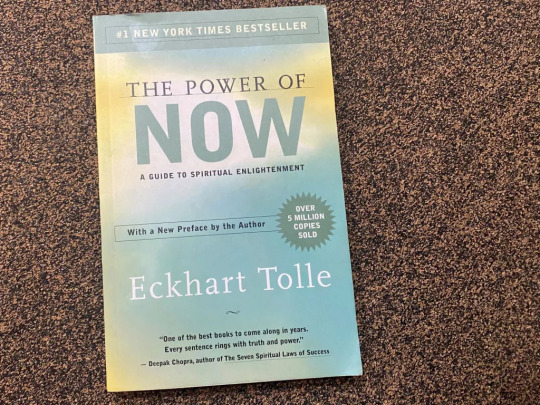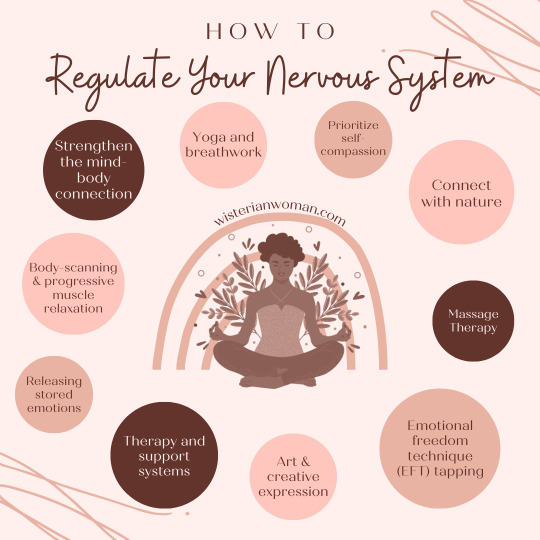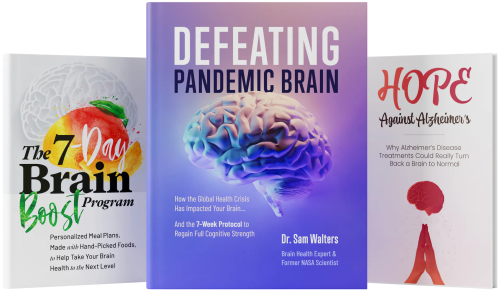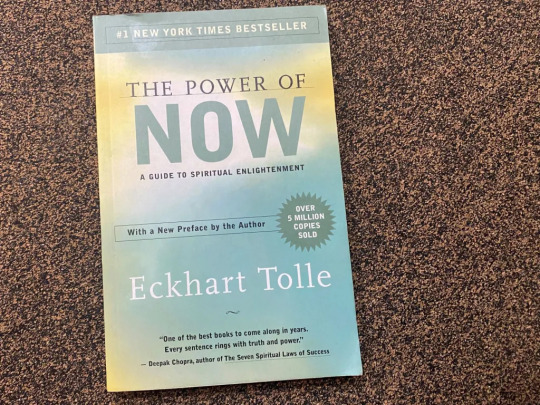#stress and anxiety relief strategies
Text
The Ultimate Guide to Finding Inner Calm: Stress and Anxiety Relief Strategies That Work
Introduction
In our fast-paced and hectic modern world, finding inner calm can feel like an elusive goal. Stress and anxiety can easily tip the scales, leaving us feeling overwhelmed and mentally exhausted. But fear not, because we have curated the ultimate guide to help you find that inner peace you've been craving.

This comprehensive guide is packed with tried-and-tested strategies to relieve stress and anxiety. From mindfulness techniques to self-care rituals, we've got you covered on your journey towards finding tranquility.
The impact of stress and anxiety on your health
Stress and anxiety are not just temporary feelings of unease; they can have a profound impact on your overall health. Prolonged periods of stress can lead to a range of physical and mental health issues, including cardiovascular problems, weakened immune system, sleep disturbances, and even depression.
When you're stressed or anxious, your body releases stress hormones like cortisol, which can have detrimental effects on your immune system. This makes you more susceptible to illnesses and infections. Additionally, chronic stress can contribute to high blood pressure, heart disease, and other cardiovascular conditions.
Furthermore, stress and anxiety can affect your mental well-being. They can disrupt your sleep patterns, making it difficult to get restful sleep. Lack of sleep can then exacerbate stress and anxiety, creating a vicious cycle. Moreover, chronic stress can lead to mental health disorders such as depression and anxiety disorders.
Mindfulness and meditation techniques for stress relief
Mindfulness and meditation have gained significant popularity in recent years for their ability to promote relaxation and reduce stress. These ancient practices invite you to focus your attention on the present moment and cultivate a state of non-judgmental awareness.
One powerful mindfulness technique is the body scan meditation. This involves systematically directing your attention to different parts of your body, noticing any sensations or tension, and consciously releasing it. By bringing awareness to your physical sensations, you can release tension and promote a sense of calm throughout your body.
Another effective mindfulness practice is mindful breathing. This involves paying attention to your breath as it enters and leaves your body. You can start by taking slow, deep breaths, focusing on the sensation of the breath filling your lungs and then gently exhaling. This simple practice can help calm your nervous system and anchor you in the present moment.
Breathing exercises for anxiety reduction
When anxiety strikes, one of the most effective ways to regain control is through focused breathing exercises. Deep breathing techniques can help regulate your body's response to stress, triggering the relaxation response and reducing the intensity of anxiety symptoms.
One popular breathing exercise is diaphragmatic breathing, also known as belly breathing. This technique involves taking slow, deep breaths, allowing your belly to rise and fall with each inhalation and exhalation. By engaging your diaphragm, you activate the body's relaxation response, promoting a sense of calmness.
Another helpful breathing exercise is the 4-7-8 technique. This involves inhaling deeply through your nose for a count of 4, holding your breath for a count of 7, and exhaling slowly through your mouth for a count of 8. This pattern helps regulate your breathing and activates the body's relaxation response..
The role of exercise in managing stress and anxiety
Exercise is not only beneficial for physical health but also plays a crucial role in managing stress and anxiety. Engaging in regular physical activity releases endorphins, which are natural mood boosters that help reduce stress and improve overall well-being.
Aerobic exercises, such as running, swimming, or cycling, are particularly effective in reducing stress and anxiety. These activities increase your heart rate, promoting the release of endorphins. They also provide an opportunity to distract your mind from daily worries and focus on the present moment.
In addition to aerobic exercise, activities like yoga and tai chi combine gentle movements with deep breathing and mindfulness, creating a holistic approach to stress management. These practices not only improve physical flexibility and strength but also cultivate a sense of inner peace and tranquility.
Conclusion:
Remember, stress and anxiety are part of life, but they don't have to control your life. By implementing the strategies outlined in this guide and making them a part of your daily routine, you can reclaim your well-being and experience a more peaceful and balanced life. So, take a deep breath, embrace the present moment, and begin your journey towards finding inner calm. You deserve to live a life filled with tranquility and joy.
0 notes
Text
10 Benefits of Cold Showers
Why You Should Embrace the Chill
In a world where hot showers are often synonymous with comfort and relaxation, the idea of voluntarily subjecting yourself to a cold shower might seem absurd. However, there’s a growing body of research and anecdotal evidence supporting the numerous benefits of cold showers. From physical health to mental resilience, embracing the chill can have a transformative…

View On WordPress
#boost immunity#cold water therapy#health and wellness#longevity#online health and wellness coach#stress and anxiety relief strategies#stress relief#wim hoff method
0 notes
Text

How to Regulate Your Nervous System for a Balanced Life
#Regulating nervous system#Transformative power#Mental health#Nervous system balance#Emotional well-being#Self-awareness#Stress management#Anxiety relief#Emotional regulation#Mind-body connection#Holistic healing#Self-compassion#Mindfulness practice#Physical relaxation#Emotional healing#Social support#Healthy lifestyle#Coping strategies#Inner peace#Self-care#Wellness tips#Emotional balance#Healing journey#Coping mechanisms#Self-discovery#Relaxation techniques#Mindful living#Stress reduction#Emotional health#Self-improvement
3 notes
·
View notes
Text
After Anxiety

At After-Anxiety.com, we aim to empower individuals to overcome anxiety and reclaim control of their lives. We provide comprehensive educational resources, compassionate support, and evidence-based tools to help individuals understand and manage anxiety-related issues. We aim to create an inclusive, understanding, and safe online community that inspires hope, fosters resilience, and facilitates growth, enabling visitors to thrive after anxiety.
Educational Resources: Dive into our extensive collection of expert articles, informative videos, and engaging podcasts that cover various aspects of anxiety, its causes, and effective management techniques. Our educational resources are grounded in scientific research and aim to equip you with the knowledge needed to understand better and tackle anxiety-related issues in your daily life.
Personal Growth Tools: Discover a range of evidence-based tools, including mindfulness practices, stress management strategies, and coping skills, designed to help you regain control and build resilience against anxiety. Our carefully curated resources encourage personal growth, self-awareness, and emotional well-being, empowering you to create lasting, positive change.
Types of Anxiety: Explore our comprehensive guides on various anxiety disorders, such as Generalized Anxiety Disorder, Social Anxiety Disorder, Panic Disorder, and Obsessive-Compulsive Disorder. This category aims to raise awareness about the diverse manifestations of anxiety, helping you identify specific symptoms, understand their nuances, and find tailored resources and strategies to address your unique challenges.
2 notes
·
View notes
Text
Is your dog stressed? How to recognize stress in dogs and why it's important
As devoted dog owners, we often go above and beyond to ensure our furry companions lead happy, healthy lives. But have you ever stopped to consider whether your dog might be experiencing stress? Just like humans, dogs can feel stressed, and as responsible pet parents, it’s crucial to recognize the signs and address any issues early. In this post, we’ll explore how to identify stress in dogs, the…

View On WordPress
#dog anxiety#dog behavior#dog calming techniques#dog coping strategies#dog stress awareness#dog stress relief#dog support#pet decompression
0 notes
Text
Defeating Pandemic Brain

Ebook providing individuals with guidance to overcome brain/mental health challenges that may have arisen during the pandemic.
Arm yourself with our game-changing 'Defeating Pandemic Brain' eBook. Discover concrete ideas and tried-and-true methods for overcoming pandemic-induced mental problems. Today, reclaim your inner balance and resilience.
Introducing our game-changing masterpiece: the 'Defeating Pandemic Brain' eBook. Immerse yourself in a realm of practical advice and skilled solutions precisely developed to overcome the pandemic's mental challenges.
Discover actionable ideas that will guide you through the jungle of uncertainty. This eBook is your loyal companion on the way to revitalizing well-being, from combating stress to managing anxiety.
Dive into a treasure trove of tried-and-true tactics that will enable you to rebuild your story. Say goodbye to pandemic-induced overwhelm and open the door to a more positive outlook.
Your solution is here :
#Pandemic Mental Health#Overcoming Pandemic Challenges#Mental Resilience Guide#Coping Strategies eBook#Pandemic Stress Relief#Emotional Well-being Tips#Self-Care Techniques#Mental Health Recovery#Pandemic Anxiety Solutions#Personal Growth Resources#Mindset Transformation#Psychological Resilience#Self-Help during Pandemic#Navigating Uncertainty#Stress Management Insights#Emotional Empowerment#Wellness in Crisis#Mental Fitness Guide#Thriving Amidst Pandemic#Resilience Building Strategies#brainwashing
1 note
·
View note
Text
What strategies do you use to increase comfort in your daily life?
What strategies do you use to increase comfort in your daily life?
Welcome to a thorough manual on professional tips for improving daily comfort and enjoying a happy, leisurely, and balanced lifestyle. It is essential to put self-care first and build a loving environment that encourages calm and contentment in today’s hectic society. This thorough investigation provides helpful tips for…

View On WordPress
#anxiety relief#comfort strategies#comfort tips#dailyprompt#dailyprompt-1994#how to feel more comfortable#how to increase comfort#how to relax#meditation#mindfulness#stress relief
0 notes
Video
youtube
Free Your Mind: How to Break the Habit of Overthinking?Title: Free Your Mind: How to Break the Habit of Overthinking and Find Inner Peace Introduction: Do you find yourself trapped in a never-ending cycle of overthinking? Are your thoughts constantly swirling, causing stress, anxiety, and a lack of clarity? If so, it's time to break free from the clutches of overthinking and reclaim control of your mind. In this blog post, we will delve deep into the intricacies of overthinking, explore its detrimental effects, and provide you with practical strategies to break this habit and find inner peace. Section 1: Understanding Overthinking In this section, we will explore what overthinking truly means and how it manifests in our lives. We will shed light on the negative impact it has on our mental and emotional well-being, relationships, and decision-making abilities. By understanding the roots of overthinking, you'll be better equipped to tackle it head-on. Section 2: The Power of Mindfulness Mindfulness is a powerful tool that can help us break free from the chains of overthinking. In this section, we'll delve into the practice of mindfulness and its profound effects on our mental state. We'll explore various mindfulness techniques, such as deep breathing exercises, meditation, and body scans, that can help you cultivate present-moment awareness and quiet the noise in your mind. Section 3: Challenging Negative Thought Patterns Overthinking often stems from negative thought patterns and self-doubt. In this section, we'll discuss how to identify and challenge these negative thoughts effectively. We'll explore techniques like cognitive reframing, where you learn to reframe negative thoughts into more positive and empowering ones. By shifting your perspective, you can break free from the grip of overthinking and develop a more optimistic mindset. Section 4: Cultivating Self-Awareness Self-awareness plays a crucial role in breaking the habit of overthinking. In this section, we'll guide you through exercises and practices that will enhance your self-awareness. By understanding your triggers, recognizing patterns, and learning to observe your thoughts without judgment, you'll gain valuable insights into your overthinking tendencies and be empowered to make positive changes. Section 5: Embracing a Balanced Perspective Overthinking often leads to a skewed perception of reality, causing unnecessary stress and anxiety. In this section, we'll explore the importance of embracing a balanced perspective. We'll discuss strategies such as seeking alternative viewpoints, considering best and worst-case scenarios, and focusing on what you can control. By adopting a more balanced mindset, you can find clarity and peace amidst the chaos. Conclusion: Congratulations on taking the first step towards freeing your mind from overthinking! In this blog post, we've explored the detrimental effects of overthinking, introduced the power of mindfulness, and provided practical strategies to break this habit. Remember, overcoming overthinking is a journey that requires patience and practice. By implementing the techniques and strategies discussed here, you'll gradually regain control of your thoughts and find inner peace. Embrace the power of mindfulness, challenge negative thought patterns, cultivate self-awareness, and embrace a balanced perspective. It's time to break free from overthinking and live a more fulfilling, present-focused life.
#Mental health#Anxiety relief#Mindfulness#Self-improvement#Personal growth#Habits#Negative thinking#Productivity#Stress reduction#Happiness#Positive mindset#Self-care#Coping strategies#Relaxation techniques#Letting go#Inner peace#How to stop overthinking#Mental Health#overthinking#how to stop overthinking#mental health#Meditation#Cognitive behavioral therapy#Focus#Motivation
0 notes
Text



here's the reason you procrastinate
based on Fuschia Sirois' research
everyone procrastinate at some point. research suggests that almost 1 in 4 people procrastinate on a fairly regular basis, and the rates are even higher among college and university students ( 50% of them procrastinate regularly and about 85-90% do so occasionally ).
because procrastination is so common we tend not to put too much thought into it, in the end what is the problem? it's just delay.
well, it's not. actually procrastination is harmful delay ( so defined by the researchers ); it is a form of delay which is:
voluntary
unnecessary
involves important tasks which you intended to do
people often underestimate the consequences of procrastination and how debilitating and harmful it can be. if you delay dealing with ( for example ) your academic works, of course you can expect some negative results in that area, but what about the collateral consequences of it?
research has shown that people who have problems with procrastination have low physical and mental health and practice less healthy behaviors. they deal with depression, stress and anxiety.
just think about the enormous amount of stress that procrastination brings: first of all, constantly chasing deadlines. deadlines can nag anyone, even those who don't struggle with delaying, but then it ends, the job is turned in, and everything goes back to normal. for procastinators this is not the case, they will keep putting off important things and will constantly end up with an imminent deadline.
so, if it's so harmful for your health, why do people do it? some people think it's about laziness or poor time managment, but actually:
laziness isn't procrastination. if you're lazy you don't have the energy to do anything, instead procrastinators are always busy with a thousand non-essential tasks to do, in fact they avoid doing one specific task, not every task ( for example if i need to study, but i'm procrastinating it, i end up cleaning my room )
poor time managment it's actually a symptom of procrastination, not a cause.
from a psychological perspective the origins of procrastination are rooted in negative emotions and the urge to cope with them through avoidance. so actually procrastination is about poor mood managment, not poor time managment.
procrastination starts when we have a task that's unpleasant, but we have to do it. and we use procrastination then as a way to get relief from those negative emotions associated with the task, so basically it's not even about avoiding the task, but it's about avoid the negative emotions that we associate with the task.
we need to avoid stress and aversive feeling that come with the task, especially when we don't feel like we can manage those negative emotions at the moment. so we take the task, we put it aside, and it's instant relief. it's fast, it's easy and it works for a little while, then that sense of shame, guilt and self-blame starts to kick in.
so why do we keep procrastinating? for that sense of relief, because that made us feel rewarded and we tend to repeat behaviors that rewarded us. this can easily lead to a cycle of procrastination.
however, the negative thoughts that we have ( "why didn't i start earlier?", "i'm letting myself down" etc. ) don't actually make us take action. they just add layers of layers on pre-existing negativity.
so how do you get out of the procastination cycle?
go back to valuing your task, if it's so important that you do it, remind yourself why you are doing it
remember that we tend to overestimate the discomfort that a given challenge will bring us. probably your task isn't even that time-consuming, unpleasant and frustrating
be compassionate and and forgive yourself, it's an effective strategy to reduce the negative emotions associated with the task. you are not the first nor the last person to procrastinate, we are all human and we all make mistakes. research has shown that doing so reduces the risk of procastination.
hope you enjoyed this little explanation, here's my sources: https://youtu.be/xTEPNxx0MsA
#academia#college#education#note taking#school#student#study aesthetic#study blog#study inspiration#study motivation#study notes#study tips#studyblr#studyinspo#studyspo#chaotic academia#light academia#academic validation#dark academia#uni life#university life#university#motivation#procrastination#why you procrastinate
674 notes
·
View notes
Text

Discover effective stress and anxiety relief strategies to regain inner calm and peace. Learn techniques like deep breathing, mindfulness, exercise, and self-care to manage and alleviate stress for a healthier, happier life.
0 notes
Text

What is Foot Reflexology?
Foot reflexology is a popular alternative therapy that involves applying pressure to specific points on the feet, corresponding to different organs and systems in the body. This practice is based on the belief that these points, known as reflex points, can help relieve tension, improve circulation, and promote overall well-being. Reflexologists use their hands, fingers, and thumbs to stimulate these points, believed to release blockages and promote healing throughout the body. Many people turn to foot reflexology as a natural and holistic way to address various health concerns and to promote relaxation and stress relief.
Foot Reflexology for Stress and Anxiety
When it comes to relieving stress and anxiety, foot reflexology can be an effective way as it stimulates specific reflex points on the feet. Remember that there are some specific reflex points that can help in managing stress and anxiety, including the Diaphragm Reflex, Pituitary Reflex, Spinal Reflexes, and Adrenal Reflexes.
The potential benefits of massaging these specific reflex points include promoting relaxation and reducing muscle tension, improving circulation, and balancing hormone levels. By incorporating foot reflexology into a regular self-care routine, individuals may experience a reduction in overall stress and anxiety levels.
Does Foot Reflexology for Stress and Anxiety Work?
Foot reflexology can be effective in reducing stress and anxiety by targeting specific reflex points associated with the body's stress response.
Its application directly impacts the peripheral nervous system, crucial in the body's stress response. By targeting specific reflex points, foot reflexology can help to improve the flow of energy and promote a sense of balance and harmony within the body, leading to reduced stress and anxiety levels.
Beyond its effects on the nervous system, foot reflexology promotes relaxation by triggering the release of endorphins, which are natural "feel-good" chemicals in the brain. This can further contribute to stress reduction and overall well-being.
In essence, foot reflexology can be an effective stress management strategy, offering a holistic approach to addressing stress and anxiety by targeting specific reflex points and promoting relaxation within the body.
Effective Foot Massage Techniques to Reduce Stress and Anxiety
Effective foot massage techniques for reducing stress and anxiety include effleurage, a gentle stroking movement that helps to promote relaxation by increasing blood flow and releasing tension in the foot muscles. Thumb walking involves using the thumbs to apply pressure in a walking motion, which can help alleviate stress and reduce anxiety by targeting specific pressure points in the foot.
Another beneficial technique is kneading, which involves using the hands to gently knead and manipulate the foot muscles, helping to release built-up tension and promote a sense of calm and relaxation. Additionally, toe rotation can be effective in reducing stress as it targets the toes, promoting flexibility and relieving tension in the foot muscles.
Finally, ankle flex and stretch can help reduce stress and anxiety by promoting flexibility and relieving tightness in the ankles, ultimately leading to a more relaxed and tension-free state. Overall, these foot massage techniques effectively reduce stress and anxiety by promoting relaxation, increasing blood flow, and releasing tension in the foot muscles. Incorporating these techniques into a regular foot massage routine can provide significant relief from stress and anxiety.
153 notes
·
View notes
Text
YOU WITH THE DARK CURLS, YOU WITH THE WATERCOLOR EYES .lıllıl.

pairings ━━ modern!farm!ellie x curly haired!reader (no mention of race or texture)
warnings ━━ overwhelming hair and fluff, Ellie touches your hair, idk
synopsis ━━ wash day, hell on earth, same thing, right? at least Ellie’s there as an emotional support girlfriend.
playlist ━━ dear arkansas daughter by lady lamb the beekeeper

Ellie knocked on the bathroom door in concern. She’d went out to tend to the sheep about a half hour ago when you said you’d be in the shower, when she came back in she heard no running water but the bathroom door was closed with occasional sniffles filling the silence.
“Babe? You good in there?” She knocked again.
“No.” Your voice finally reached her ears, causing her to let out a sigh of relief.
“I’m coming in, is that okay?” She waited for your agreement before fully turning the knob and stepping into the bathroom carefully.
Inside she found you in a tub of water, untangling brush in hand and tears leaving salty streaks down your cheeks, knees clutches to your chest.
She cooed at the sight and came to sit on the toilet next to you. “Aw baby, what happened?”
“I left my hair in a bun but then one chuck of hair got tangled into the hair tie and I spent so long taking it out the hair tangle in on itself and-“ you rambled angrily, tears welling in your eyes the more you spoke.
“Okay, okay.” Ellie cut you off and placed her hands on your cheeks, wiping away the tears. “Lay down.” She instructed.
You listened and let her carry your head backwards into the water. “How are the sheep?” You mumbled.
She smiled, “The sheep are good. The babies are happy.”
Tears grew in your eyes once more. “The babies, we have to name the babies.”
Ellie nodded and agreed with you, pulling your head up from the water and pumping extra conditioner into your hands.
“Wait but-“ you protested, knowing how much she hated going into town for unnecessary things.
“No, no, it’s okay. When I go back into town, I’m gonna find you a huge tub of this that’ll last you years.” She stated, sitting back against the toilet and watching you rub the conditioner back in your hair.
You sniffled and started the untangling process. “They have it on Amazon.”
“Okay, I’ll make sure to find the Amazon man and tell him to get me ten of those.” You shook your head at her unwillingness to confine to modern things unless they directly related to the farm and calmed yourself down.
Or maybe she did, her simple being in the same room as you never failed to have a better calming effect than any anxiety meds ever made. When you began to tug at your hair rougher than you knew you should in your frustration, she was there to gently place her hand on your forearm as a silent way of letting you relax.
By the time you did one side of your head, you whined in defeat and turned your back on her. “Do the back before I kill myself.”
She choked out a laugh and grabbed your untangling brush, situating herself comfortably behind you and starting from the ends of your hair to the top, sprinkling any extra conditioner when needed. It was quite the understatement to say her hands were definitely gentler than yours ever were.
Her strategy was patience, taking extra time to run through already brushed out areas to run her fingers through and taking it all in sections. By the time she reached near your ears, your eyes had lowered to a close and you no longer felt the stress of before.
“I’m done with the back.” She announced, leaning into your shoulders to plant a soft kiss.
“Mhm, no, no, come back. Do it all.” You mumbled. Ellie smiled and kissed your ear, returning to her place behind you and continuing the untangling processes.
When all was well and finished, you thanked her and stretched out your tired muscles. You turned on the faucet again and finished the rest of your routine with Ellie right by your side, sometimes making conversation, sometimes gawking at you naked but hey, can’t blame her.
When you stood up out of the bathtub, Ellie was immediately there with a towel, cheekily excited to wrap it around you.
“D’ya want me to get started on lunch?” She asked
“Are you sure? I can get dressed real quick and-“
“No, no, I have something planned. Put on a nice dress, paint your nails, put on a little something under…” you pushed her shoulder, “and then come down to the front of the house. Got it?”
“Got it.”
She planted a quick peck on your lips and walked away, whatever plan she had setting in motion.
You followed her directions and took your time styling your hair, applying extra layers of lotion and perfume, not to mention her extra instructions were carefully considered. Even after finishing all that, prim and proper, she wouldn’t let you leave the room.
“Can I come down now?” You called out into your empty room, the thin walls echoed your question down to the kitchen where Ellie was.
“Not yet!” She responded, a few kitchen utensils clattering against each other right after.
You winced, “Are you sure? I can always come and-“ You were immediately cut off by Ellie pushing the door wide open, slightly out of breath and holding a bouquet of flowers wrapped in gingham printed paper. “…help.”
Ellie breathed out a chuckle and came closer to you on the bed, holding the bouquet out for you to see. “Is it- did I do good?” She cleared her throat nervously.
You looked up at her in astonishment. “Good? Ellie, this is fucking incredible! How did you- when did you?” Shutting yourself up, you completely threw yourself into her arms, accidentally crushing the flowers.
Ellie, reluctantly, pulled away with a yelp. “Hey, hey! You’re crushin’ my hard work, babe.”
“Sorry.” You apologized but your face showed no sign of it, smile too wide as you held the bouquet in your arms.
“C’mon, there’s more where that came from.” Ellie slipped her hand into your and interlocked your fingers.
She led you out of the farmhouse and into the front yard covered in freshly cut grass. There laid an intricate set up picnic with a red and white gingham blanket that matched the flowers spread out, name brand snacks that would take Ellie a two days trip worth of, and your favorite sandwiches and fruits/veggies neatly placed in the middle. You brought your hand up to your mouth and tried to stop the tears from flowing out.
“Ellie Williams, you are such an asshole.”
She made a noise of surprise, her jaw dropping open in defense.
“I have cried too much today and here you go, making it worse.” You jokingly complained.
She laughed in surprise and wrapped her arms around you from behind, kissing your ear once more. “Cry all you want, my little crybaby.”
Ellie guided you towards the set up and you both sat down, happily devouring the food she made and the snacks she brought. She happily indulged you in everything on the blanket until you had to physically pull yourself out of her arms before your stomach exploded.
It was unclear how long you had been sitting there but when the sheep in the barn started to get fussy and the sun began it’s descent, you knew you’d spend an entire day in this exact moment if you could.
Ellie’s head rested on your thighs as your ran your hands through her short hair and the falling sunlight hit her eyes in just the right way. Her green eyes sparkled, a weight lifting off her shoulders that she never thought she’d get after Joel. Everything was perfect.
“You belong in a painting, Williams.” You said, brushing her hair away from her eyes.
She scoffed, removing her eyes from yours and looking into the sunset nearby. “Oh, shut up.”
“You shut up, why don’t you let me compliment you, huh?” You poked her cheek.
“Because that’s my job, gorgeous.” She winked up at you and deflected the conversation.
You continued, “We are stuck together for life so don’t think you can get out of this.”
“Oh please, I’d crash and burn without you, babe.”
#ellie the last of us#ellie tlou#ellie williams#ellie williams fanfic#ellie williams fluff#ellie williams x reader#ellie williams x y/n#ellie williams x you#ellie x fem reader#ellie x reader#the last of us#tlou fanfiction#tlou2 x reader#tlou2#the last of us part 2#lgbtq
293 notes
·
View notes
Text
Lil Life Update for Y'all <3

I've been a lil cryptic or back-n-forth, I think, and just wanted to share a little bit about what's been going on. I say it's not for attention but who knows what motives lurk under there, LOL. It's mostly because I love you all and want to let you in, also hope that it's encouraging or connective for anyone else who's experienced the same, and also I just miss the community I have sooooo loved here. 🥹
I'm a 34yo female with 2 kids aged 4 and 7. I had depression like crazy during and after my second pregnancy especially. In Aug 2021, my primary doc suggested I try something like Zoloft since I'd been complaining of irritability, no capacity, constant worry, and other anxiety symptoms. When I did feel some relief and felt encouraged that I could "feel like myself" again, I pursued solutions for other issues I was noticing. Over the last year and a half, it's been quite a ride. ADHD symptoms led to Adderall for 4 days, then Wellbutrin for a few months, then Buspar for a few months, then Strattera (tapering up and then back down) for about 3 months, then Ritalin for 1 month, which I thought was helping until we realized that the entire month of October was basically an increasingly manic episode.
Whew.
We're talkin 2007 Britney here (ok I didn't shave it but I cut my hair off into a pixie). Spent thousands on a new wardrobe of the "dark academia" style. Bought Disneyland tickets. Invested in a photography mentorship. So much energy and inspiration. Then we realized it was getting out of hand.
I had also been tapering off a lot of the meds over the last two months, so it was just a crazy cocktail of chemicals that made my brain finally go kaput. I finished the last dose of Zoloft on November 5th, and that was the last of the meds, so now I'm off everything. My therapist thought the mania was medication-induced due to all the changes plus the addition of the stimulant, so the goal was to try to allow everything to settle down and see what "baseline" is for me right now.
And it has been frickin HARD.
Cervical vertigo. All-or-nothing sleep and appetite. Extreme sensory sensitivity. Random itchiness. Racing mind. Total inability to focus. And the worst part has been the mood swings.
I'm basically having all the symptoms of bipolar disorder in a rapid-cycle format. It may be cyclothymia, or it may be the withdrawal effects from all the meds, but regardless... It's been quite the roller coaster. The nerd in me has been fascinated by the experiential knowledge of it all, since I majored in Psychology and have always loved learning about it, but the overall negative effects on me and my family have been difficult.
I'm someone who has always relied completely on being highly capable and in control. I find my worth in my productivity and competence. And it has caused increasing stress throughout my life. I've been praying for years that God would break me of it, and I can see how he is using this to do precisely that -- lovingly trying to answer my request to be freed of this relentless pursuit of the illusion of control. He's inviting me to simple, joyful life of trust. The perspective shift is so freeing when I realize that I don't need to have it all figured out because he already does, and I can just rest in his loving guidance and look to him for the next step instead of trying to plan out every possible outcome and strategy. I went on a reflective retreat in the Santa Cruz mountains and just felt so encouraged and loved in the way he invited me to let my shoulders down and to ground myself in his warm provision and care.
But the change doesn't happen overnight.
So in the middle of a total storm of bipolar symptoms -- days of mania followed by days of depressive episodes and being so new at it all that I don't know how to navigate "normal life" with all of that -- I'm also trying to rewire 34 years' worth of the way I think and act. BUT it's a blessedly simple process: the only thing I have to worry about is this moment. I can't affect the future or the past. So all I have is right now, and I can turn to God for guidance, encouragement, insight, or anything I need in this moment, and he is so faithful to give it. But man, it's easy to forget. ;)
Literally me with that right now, trying to figure it all out on my own before I remember I can't and don't need to:

Anyway, this got LONG, surprise surprise, but I've always enjoyed being vulnerable for the sake of connection and potential encouragement. And selfishly, I'd LOVE to hear from any of you who may have had similar experiences. Right now the fixation of my [very limited] capacity is on my photography business, but I've been feeling drawn to writing more and more, and have attempted a lil drabble here and there. So I'm just patiently waiting for the inspiration to return. :)
I have so appreciated the love from you all. I also haven't been as active with reading/reblogging/supporting/etc as I was, and that's just where I'm at right now, but please know that my heart is with you even if my brain is not, LOL.
If you made it this far, you get a gold star. Or a Howzer hug. Or somethin. :)
65 notes
·
View notes
Note
Do you mind talking more about skk intimacy issues?
i've ranted a lot about it in friends' DMs, and i'm only ever able to wax poetic when the urge strikes, which it hasn't since i received this ask. so rather than wait for the urge to strike any longer, i've just copy and pasted one of my many discord rants below. it doesn't really answer your question unless you understand that it only works so long as they never discuss it out loud, which becomes delicate when they're genuinely upset with each other (which is inevitable given how grating they are to the other).
[dated September 5, 2023, for reference]
i don't think submissive chuuya makes any sense given he'd argue with a brick wall if he thought it was pushing back against him but I don't think he'd like to be wholly domineering either. but reading the six enneagram materials helped me figure out where this chokepoint is, and it has to do with his anxieties interacting with his contrarianism. chuuya struggles with leadership, he wants it but he also gets very stressed out and tends to fall apart under too much pressure if he thinks it's all on him. he tends to do best in situations like with what he has with mori; where he feels like he has autonomy and he feels powerful and in control of what's happening to him, but he gets to listen to the orders of someone he perceives as more certain or wiser than him. and i do think dazai like yearns a bit to be rescued, and to be seen, but he can't handle the mortifying ordeal of being known either. so like I think there would need to be a push/pull, where chuuya isn't entirely having to navigate their dynamic but where dazai feels like he's being understood and recognized.
that's what they're doing when they're working in tandem anyhow; they're pulling the other and trusting the other to not let go and leave the tension to the other one alone. I also think it's like somewhat why, although he throws little fits about it, chuuya lets dazai boss him around when they fight. because he's GOING to argue back, he can't not meet confrontation with his own. but there's a sense of relief, too, I think to the way that dazai seems very sure of his strategies. and I think dazai works well with chuuya because he can trust chuuya to think and to adapt and to respond to what's happening in a way that ensures that like dazai's plans won't get him killed, and that assuringly disprove the feeling that he has that no one else in the world could understand his mind. because that chuuya can predict and interact with and vibe with what dazai's thinking without dazai needing to give precise instructions lends itself to the feeling that perhaps chuuya is privy to him after all. (as like, at least part of it. i think that chuuya doesn't need him necessarily eases Dazai into leaning on him in a way that he would have difficulty with if he saw chuuya as someone wholly needy)
dazai needs to be allowed to be coy and mysterious, but also receive the attention he wants but can't ask for. chuuya needs to feel like he's safe and secure but also doesn't want to be on his own or feel as if their safety and pleasure depend on him entirely.
#bsd#bungou stray dogs#soukoku#skk#bsd dazai#bsd chuuya#sorry that it's all in lowercase i'm inconsistent and undomesticated
26 notes
·
View notes
Quote
Our troubled relationship with time arises largely from this same effort to avoid the painful constraints of reality. And most of our strategies for becoming more productive make things worse, because they’re really just ways of furthering the avoidance. After all, it’s painful to confront how limited your time is, because it means that tough choices are inevitable and that you won’t have time for all you once dreamed you might do. It’s also painful to accept your limited control over the time you do get: maybe you simply lack the stamina or talent or other resources to perform well in all the roles you feel you should. And so, rather than face our limitations, we engage in avoidance strategies, in an effort to carry on feeling limitless. We push ourselves harder, chasing fantasies of the perfect work-life balance; or we implement time management systems that promise to make time for everything, so that tough choices won’t be required. Or we procrastinate, which is another means of maintaining the feeling of omnipotent control over life — because you needn’t risk the upsetting experience of failing at an intimidating project, obviously, if you never even start it. We fill our minds with busyness and distraction to numb ourselves emotionally. (“We labour at our daily work more ardently and thoughtlessly than is necessary to sustain our life,” wrote Nietzsche, “because to us it is even more necessary not to have leisure to stop and think. Haste is universal because everyone is in flight from himself.”) Or we plan compulsively, because the alternative is to confront how little control over the future we really have. Moreover, most of us seek a specifically individualistic kind of mastery over time — our culture’s ideal is that you alone should control your schedule, doing whatever you prefer, whenever you want — because it’s scary to confront the truth that almost everything worth doing, from marriage and parenting to business or politics, depends on cooperating with others, and therefore on exposing yourself to the emotional uncertainties of relationships.
Denying reality never works, though. It may provide some immediate relief, because it allows you to go on thinking that at some point in the future you might, at last, feel totally in control. But it can’t ever bring the sense that you’re doing enough — that you are enough — because it defines “enough” as a kind of limitless control that no human can attain. Instead, the endless struggle leads to more anxiety and a less fulfilling life. For example, the more you believe you might succeed in “fitting everything in,” the more commitments you naturally take on, and the less you feel the need to ask whether each new commitment is truly worth a portion of your time — and so your days inevitably fill with more activities you don’t especially value. The more you hurry, the more frustrating it is to encounter tasks (or toddlers) that won’t be hurried; the more compulsively you plan for the future, the more anxious you feel about any remaining uncertainties, of which there will always be plenty. And the more individual sovereignty you achieve over your time, the lonelier you get. All of this illustrates what might be termed the paradox of limitation, which runs through everything that follows: the more you try to manage your time with the goal of achieving a feeling of total control, and freedom from the inevitable constraints of being human, the more stressful, empty, and frustrating life gets. But the more you confront the facts of finitude instead—and work with them, rather than against them—the more productive, meaningful, and joyful life becomes. I don’t think the feeling of anxiety ever completely goes away; we’re even limited, apparently, in our capacity to embrace our limitations. But I’m aware of no other time management technique that’s half as effective as just facing the way things truly are.
Oliver Burkeman, Four Thousand Weeks
56 notes
·
View notes
Text
What is Age Regression? Is It Healthy? (UPDATED AS OF 2/25/19) - Age Regression Series
Originally posted to www.onlyfunthings.org on May 14, 2018

Ciao lovelies! Today’s post is a follow up to THIS post about how there is no expiration date on fun! Today’s post is going to be about how expressing your “childish” side and indulging “childish” wants or hobbies can be super healthy to your mental state! In other words, we’re going to be talking about the unconventional “age regression” coping mechanism. (TRIGGER WARNING- Mentions of sexual abuse, self harm, eating disorders.)
(Please note that in this post we are not discussing the hypnosis level of this coping skill! We are simply talking about tapping into your inner child for the sake of stress relief and coping with traumas. Also DISCLAIMER- I am not a medical professional or a licensed therapist. I am simply recommending this from personal experience, not from a place of expertise.)
Even though this practice is increasing in its popularity, many have misconceptions about what this is or what it’s good for. The most simple and truthful definition is this “Age regression is when somebody reverts to a child-like state of mind, often as a coping mechanism for things like PTSD, depression, anxiety, and other mental health issues.” And this meaning is what we are talking about today.
Unfortunately for the sake of this post, there aren’t a lot of reputable sources for age regression, many of these sources get it wrong, and most places that even mention it mistakenly assume it is a sexual thing, when it is absolutely not. And that is why I wanted to write this article, to create a article that regressors can link back to and use to explain this to others, to end stigmas against regression and to stop the spread of misinformation.
MYTHS ABOUT AGE REGRESSION:
“Age Play and Age Regression are the same”- This is incorrect. Age Play is when someone pretends to be a younger age for a sexual reason. Age Regression is when someone feels like or goes into a younger head space for therapy/coping/stress relief reasons. The two are distinctly different but unfortunately get grouped together by ignorance.
“Age Regression requires you to have a ‘Caregiver’”- This is also incorrect! You don’t need someone to be taking care of you in order to regress, because regression is based off you, your mental state and your coping mechanisms/therapeutic methods.
“You must have had a bad childhood in order to age regress”- Actually, you can have had a perfectly normal childhood and still regress! For one, sometimes the traumas people are coping with happened later in life, so they’re regressing to cope with it now, other times for two, people regress for stress relief not necessarily to relive childhood!
“You can only age regress if you’re mentally ill/Age regression is a mental illness”- Neither of these are true, as you can regress even if you’re neurotypical. Age regression is not a type of mental illness but is instead a coping strategy/therapy method/stress reliever.
EXPERIENCES:
Now, I will share with you some people’s personal experiences with age regression to help them. Every story shared was shared willingly with us and we have kept certain people anonymous. The only thing changed in these stories is grammar/spelling. Everything else is left untouched.
“I regress because I was sexually abused as a child and teen. When I regress, it’s like I get a new childhood where nothing bad happens to me. It’s nice to be able to play with toys and color and relax and have the flashbacks and painful memories stop for once. I have told my therapist about my regression and she said it sounds like a very healthy coping mechanism. I used to cut to cope with my PTSD from the abuse, but now I can just regress and be happy.” – Anonymous
“I started regressing at the end of high school without knowing what I was doing because I just thought I was childish. I noticed that when I was regressed I could finally get myself to eat which I had difficulty with because of my anorexia. The hardest part of it all for me is knowing I can’t explain myself to the ones I care about because they might judge me or not understand it.”- Anonymous
"When I was very young I went through a lot of mental and physical trauma, and this continued into my young adult life. I ended up developing a bunch of different disorders causing me to have intense mood swings, flashbacks, night terrors, and panic attacks. I'm in a constant state of extreme anxiety without a cause. But when I age regress I am able to express my emotions and deal with past traumas. It gave me a much needed outlet in what I saw as a world of darkness. It helped pull me out of my depression, and helps me cope in a positive way. I've been regressing for about 3 years, and I have never improved as much as I have in these past years. My regressed state is the only time I'm not constantly anxious and paranoid. My mood swings happen less often and I'm more positive in general. Age regression has changed my life for the better, and become a part of who I am as a person." - (Please note that our source for this quote has left Tumblr and we have no other accounts to source them to- 1/13/19 update)
What do you think of Age Regression as a coping mechanism? Would you ever try it? Have you? Let us know what you think in the comments!
One last note! Please do be cautious when using this coping skill. I have been informed that it is possible for this coping skill to cause dissociation. Please exercise caution and only do what you feel is comfortable and healthy for you.
If you are an age regressor, we have some more articles for you! Such as:
- Age Regression Journaling
and
-Age Regression Self Care
We also have a YouTube Channel with lots of agere Goodness, like this video:
youtube
Remember to Stay Awesome and Love Yourself!

#worksheets#agere class#agere classroom#agere daycare#agere school#agere#age regression#sfw agere#sfw littlespace#age regressor#sfw age regression#agereg#age dreaming#sfw little blog#agere blog#Ciao lovelies#Agere diys#Agere diy#Agere craft#Agere crafts#agere learning#age re#age reg#ageregression#age regress#age re safe space#age regression blog#age regression community#age regression sfw#age regressive
11 notes
·
View notes